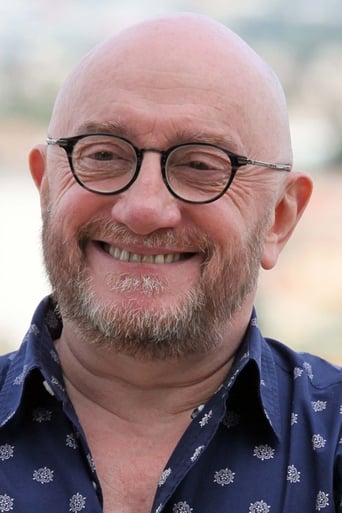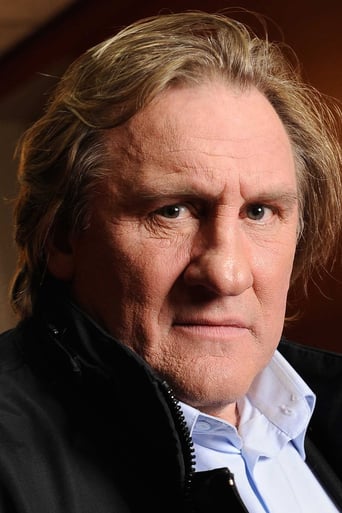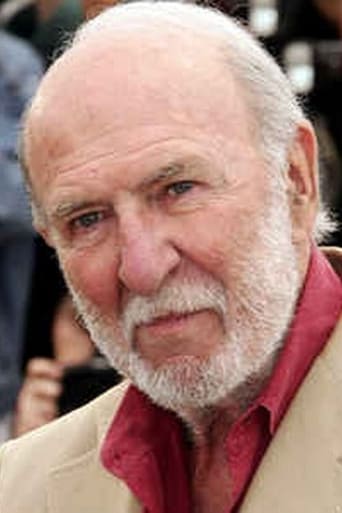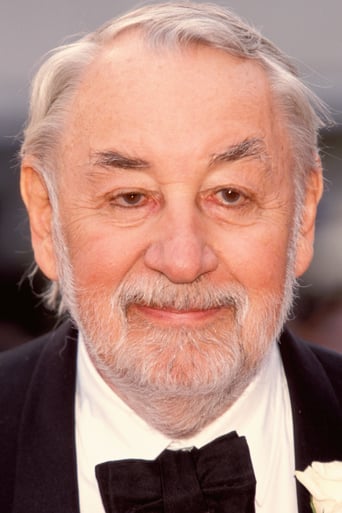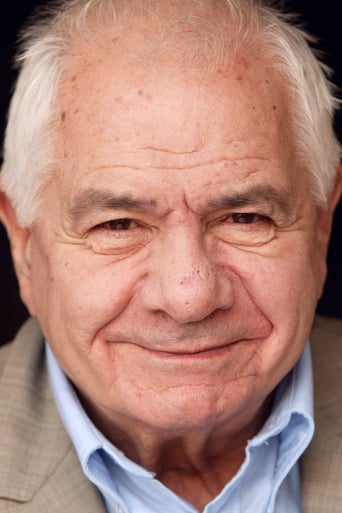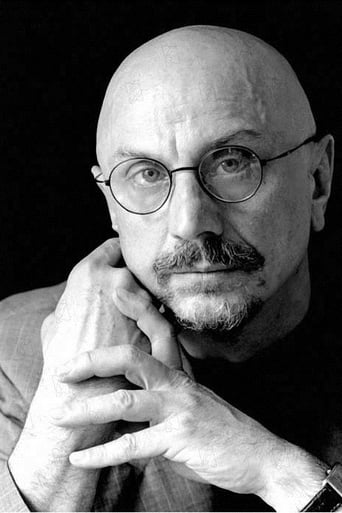Colibel
Terrible acting, screenplay and direction.
Phonearl
Good start, but then it gets ruined
AnhartLinkin
This story has more twists and turns than a second-rate soap opera.
Delight
Yes, absolutely, there is fun to be had, as well as many, many things to go boom, all amid an atmospheric urban jungle.
robert-temple-1
This is the film which Claude Berri directed immediately after his world-famous pair of films based on Marcel Pagnol stories, JEAN DE FLORETTE (1986) and MANON DES SOURCES (1986). This film is based upon a novel by the well-known French author Marcel Aymé (1902-1967, 59 films having been made between 1934 and 2016 either based upon his works, or incorporating his written contributions to dialogue or scripts). The film contains spectacular bravura performances from both Philippe Noiret and Gerard Depardieu. Anyone interesting in seeing superlative acting by two of France's finest actors need look no further than here. They both have scenes of such shattering force and power that the screen shakes. Noiret's rant is a philosophical one, and is a real tour de force of writing as well as of delivery. This film deals with the tensions of a French village in central France subsequent to the end of World War II. 'Collabos', i.e. collaborators who aided and worked with the occupying Nazis, or who were officials of the ousted Vichy regime, are being rounded up and summarily executed by local committees, some official and some not. For the moment, the Communists are in control of the village, and they are the most bloodthirsty. Many cynical comments are made by the characters about how huge numbers of people not only now claim to have been members of the Resistance, but have actually faked papers and evidence to try to prove it, and thus escape being executed as collabos. In the midst of all this is the naive idealist Leopold, who runs a tavern, played by Depardieu. He is a man of no education who has become obsessed with a love of classic poetry and drama. He keeps quoting from Racine's 17th century drama ANDROMACHE and attempting to write properly scanned lines of original verse to add to it. He is framed by one of the Communists and arrested as a collabo. He has great difficulty extricating himself from this and the inevitable village firing squad. Everyone in the village is ratting on everyone else, except for the character played by Philippe Noiret, who sublimely attempts to ride above all the political passions and insists that there is some good in everybody. Many villagers have been billeted in their neighbours' home temporarily because their houses have been destroyed by bombing raids and they have nowhere else to go. The main square of the village is littered with rubble, and there are ruins of bombed houses everywhere. So high do the passions run that when a train arrives bringing home many young soldiers from prisoner of war camps, who have been absent from home for five years, one of the young men is savagely attacked and beaten in the middle of the welcoming ceremony because he was reputed to have been a collabo inside the POW camp. So everyone is going for everyone else, and it is not a pretty sight as we discover scandal after scandal about the villagers. Eventually we realize that the police have been 'bought' by a collabo profiteer, so that they will jail or kill anyone he wishes. Aymé's story is deeply cynical as an exposé of the corruption, hypocrisy, and viciousness of French villages, and we are shown just how horrible it is trying to get back to normal after years of occupation by a ruthless foreign power, when half the population have been collaborating with the oppressive invaders. As for the human stories in this film, they are as full of tragedy, irony, and hypocrisy as one could possibly imagine. The film is so well made that it is compulsive viewing, but it reveals much about human nature that most of us wish we did not have to know. And it is a sad, sad history lesson indeed. As for the involvement of Uranus in all this, it is as follows. Philippe Noiret was reading one night in his home when the bombers came and destroyed his house, killing his wife. He was saved by resting freakishly on a single beam which did not collapse with the rest of the house. At the time of the raid, he had been reading an astronomy book and was just at the point where he was reading about the dark and gloomy outer planet Uranus. Subsequently, he has had repeated nightmares about the bombing raid mixed with visions of Uranus, so that he became haunted by the gloomy planet, and it became to him the symbol of all that was wrong and horrible in life. This film is trying to tell the French people that Uranus can still haunt them if they do not come to terms properly with all the horrors of the War, the Occupation, the collabos, and the subsequent illegal and rough justice meted out by what were nothing less than politicised vigilante gangs, who were often bribed by corrupt criminals. And lest anyone think these subjects are exaggerated, let me remind everyone of the most famous Vichy official to successfully pose as a Resistance supporter after the War, and who thus fraudulently gained the adulation of the French public and became elected President of the Republic. His name was Francois Mitterand, and when the truth about him finally came out, we all learned that he had been the greatest hypocrite of them all.
writers_reign
Claude Berri seldom lets you down whether as Producer, Writer, Actor or Director and if he has a signature when Directing it is in the beautiful compositions he delights in even if dealing with a serious subject as he is here. Although he is no slouch as a writer of Original Screenplays himself some of his finest works have been adaptations of existing material such as Marcel Pagnol's Jean de Florette, Emile Zola's Germinal and this work, based on the novel by Marcel Ayme. It is now a good sixty years since the end of World War II but it remains a sensitive issue to the French for the simple and obvious reason that for several years (1940 - 1944) they were an Occupied nation and that brought out the very Best (Resistance) and very Worst (Collaboration) in the population. Berri's masterstroke is to set his film in the immediate aftermath of the war in a small town still strewn with the rubble of bombing, a backdrop against which the citizens are attempting to resume their lives but in doing so they merely applied a bandage but no dressing to the raw wounds of guilt and retribution allowing them to continue to fester beneath the surface and occasionally erupt into violence and as always it is the essentially gentle giant (Gerard Depardieu), a poetry loving saloon keeper, who pays the highest price. The acting is of the very highest standing throughout with Depardieu, Michel Blanc, Philippe Noiret and Fabrice Luchini beyond praise, as is the film itself if anyone asks you.
Bob Taylor
Claude Berri has given us some fine pictures in the past; this is one of his very best. Aymé's novel had been very cynical, Berri keeps the tone and adds some fiery acting by Depardieu as Leopold the doomed barkeeper to create a lovely film. Hiding a collaborator might have been the focal point of some other film, but here it's almost secondary to the vicious intrigue going on among Communists, Pétain fanciers and others who just want to survive. It's a delight to see Berri showing Rochard, the Communist stalwart who had denounced so many, reporting Leopold to the police as having given shelter to Maxime Loin, then Leopold hires Rochard to help him in the bar: very funny and very pointed satire.The performances are all so good. Michel Galabru as the oily, vicious Monglat, the profiteer whom everyone fears but whom everyone curries favor with is superb. Fabrice Luchini as the doctrinaire Communist Jourdan has hollow cheeks and horrible button eyes; he looks like one of the demented saints in El Greco's paintings. Michel Blanc as Gaigneux, the more realistic Party member, is solid--he not only wants to navigate the swift currents of politics, but is looking for love from Archambaud's daughter.
Gilles Tran
WWII left of lots of scars in French memory. Right after the war, all the French were supposed to have been freedom fighters, minus a few baddies of course. Then, slowly, a different truth started to emerge, and since the controversy has been raging on. Uranus, written by Marcel Aymé right after the war, was always controversial, as is this modern adaptation by Claude Berri. In this half-destroyed (by US bombings) French village in 1945, people try to have their lives back, or to save themselves : communists, drunks, sadistic late-hour partisans, former antisemitic hate-mongers, war profiteers... These characters may be too theoretical to be convincing, and of course the permanent blurring of the line between the good and bad guys is too systematic. However, the superior acting and the fact that the movie still manages to raise difficult issues (the general tone is very misanthropic), make it very compelling.
